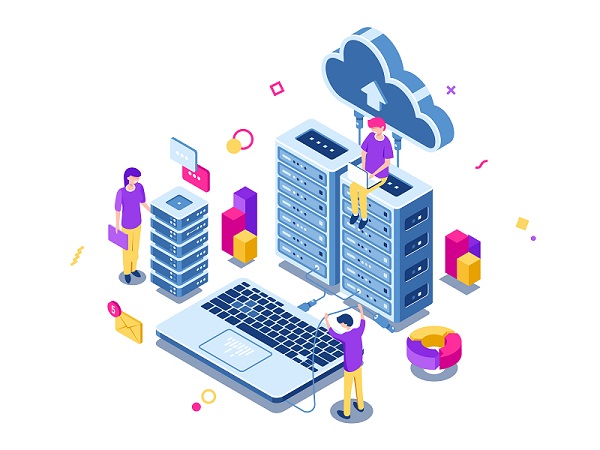Cloud computing is a revolutionary technology that has changed the way we store and access data. It allows businesses to store and access their data from any location, without having to invest in expensive hardware or software. With cloud computing, businesses can quickly scale up their storage capacity without any additional cost or effort. In addition, the benefits of cloud computing are innumerable as it provides enhanced security features, making it an attractive option for businesses looking for secure data storage solutions.
Moreover, it is a technology that allows users to access programs, data, and services over the internet. It allows users to store, manage and process data on remote servers hosted by third-party providers.
Whereas cloud computing in healthcare eliminates the need for physical hardware and software, allowing medical health professionals to access their applications and data from anywhere in the world with an internet connection. By leveraging cloud computing, the healthcare industry can save time, money, and resources while gaining greater flexibility in its operations.
When it comes to other industries, cloud computing enables professionals to store, manage and access data from around the world. It allows several organizations to outsource their IT infrastructure and services, enabling them to reduce costs, increase scalability and improve performance. Cloud computing also provides a secure environment for data storage and processing, making it an attractive option for businesses of all sizes. With cloud computing, businesses can access the latest software applications without having to invest in hardware or software licenses.
Pros and Cons of Cloud Computing
The advantages of cloud computing are many, however, there are some limitations too. Cloud computing has become a popular choice for businesses of all sizes due to its cost-effectiveness and scalability. It allows companies to store and access data from anywhere in the world without having to invest in expensive hardware or software.
However, there are certain risks associated with cloud computing that should be taken into consideration before making the switch. In this article, we will discuss the pros and cons of cloud computing so that you can make an informed decision.
Pros of cloud computing
There’s an explanation cloud computing has grown so prevalent across businesses all around the world: it just is economical. The advantages of cloud computing are more diverse and effective than you may know, so let’s look more closely at what this innovation can do for you. Let’s explore some of the benefits of cloud computing-
Reduce costs
Even if you invest money in important tools, some errors are bound to happen. If your team is in command of setting up the tools and makes an unintentional error, then there is nowhere to seek assistance. However, this burden of managing in-house technology is avoided with the benefits of cloud computing because your organization is backed by the assistance of professional cloud computing providers. This, in turn, helps you save money because the expense of technology is incorporated into your plans and shared by all the service company’s clients.
Combines data
Data is spread across macro and micro-data centers using cloud services. Syncing the technology allows data to be swiftly linked and modified, however, keeping the information in the cloud reduces the need for syncing. When all your data is maintained on the cloud, you always know where it is at any time.
Safeguards data
The corporate security integrated into cloud-based storage services considerably exceeds what most small and mid-sized organizations can spend on-site. One reason to keep information in the cloud is that there isn’t a single failure point. Your data is regularly backed up to multiple servers, ensuring that even when one fails, your organization’s information remains confidential and safe.
Cons of cloud computing
The advantages of cloud computing in healthcare and other industries are hard to ignore, but what are the disadvantages of this phenomenon? Let’s check…
Vendor mismatches
Vendor incompatibilities can be one of the downsides of cloud computing. When transferring operations to a new provider with a different network, organizations may experience problems. If this process is not executed properly, data may be susceptible to unwanted risks. A reputable cloud computing services provider will be able to transfer your information safely and seamlessly across different vendors.
Slow backup processes
Backups may take a bit longer than they would if using an in-house system due to the substantial communication delay associated with sharing data on the cloud. This is not normally an issue when you do larger backups. Large file backups can occur in the backdrop without interfering with networks, and shorter backups require less time.
However, it may take longer if you need to restore an entire server. Individual files and folders, on the other hand, are unlikely to be affected while backing up the data. Moreover, with the professional cloud computing services provider, speed differences are minimal.
The benefits of cloud computing outweigh the downsides by a wide margin. The cloud is a flexible solution that may help businesses of all sizes save both money and time. However, not every provider can deliver the same level of advantage. Antino delivers unrivaled IT solutions and services with passion and precision to give their clients a seamless experience.


